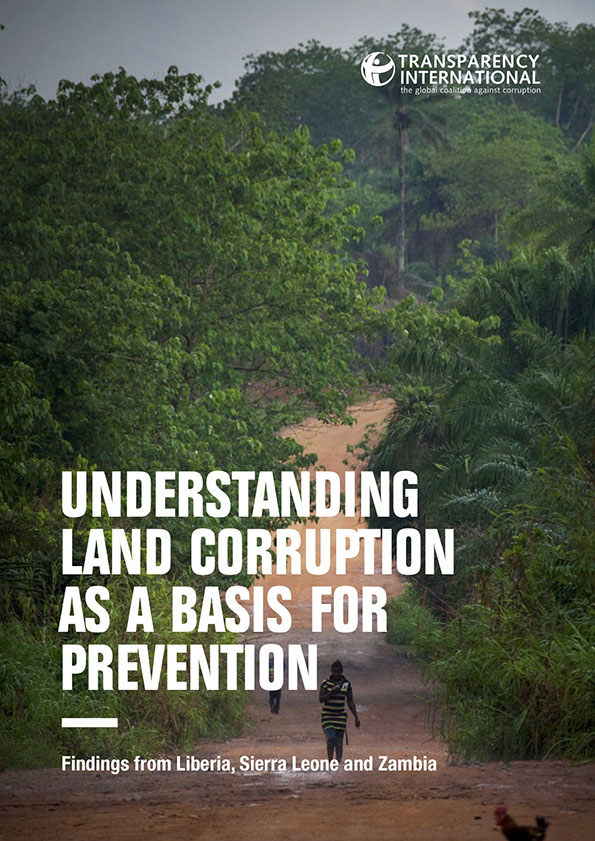Resource information
From forced eviction to loss of livelihood, social status, savings and even life, land corruption in Africa has serious and far-reaching consequences. Such corruption comes in many forms, and it must be understood – along with the factors that enable it – before it can be tackled.
Bribery, sexual extortion, collusion and fraud are common across all three countries, with patronage, cronyism and kickbacks also occurring. Various forms of poor legal framework, weak implementation, cultural discrimination and exclusion, and a lack of information about land rights enable corruption to thrive in all three countries.
Frequent consequences include insecurity of tenure, loss of livelihood, environmental damage, land disputes and diminished trust in public institutions, as well as reduced social stability, investment, economic growth and sustainable development.
These research findings are intended to inform policymaking and the design of targeted interventions to detect and prevent corruption over land in Liberia, Sierra Leone, Zambia and beyond. By closing legal loopholes, ensuring regulations are implemented, addressing discrimination and exclusion, and providing accessible information about land rights and processes, policymakers and development actors can ensure security of tenure and land justice for all.
This publication was created by the Land and Corruption in Sub-Saharan Africa programme at Transparency International. Visit our website for more information, follow us on Twitter and read stories of land corruption from across Africa on our Medium account.


